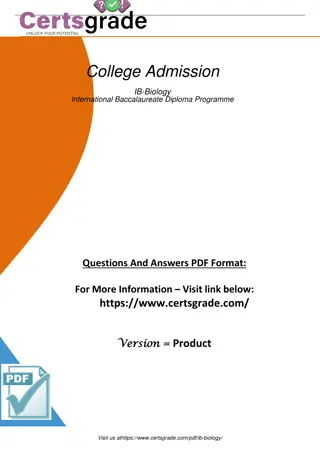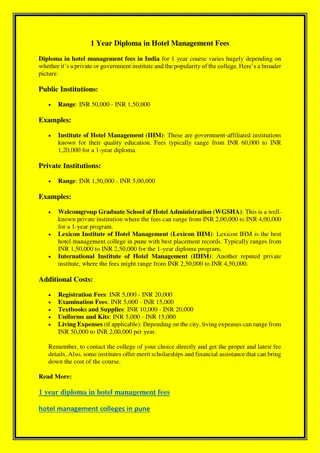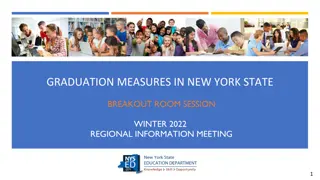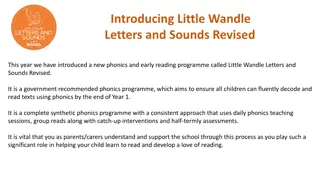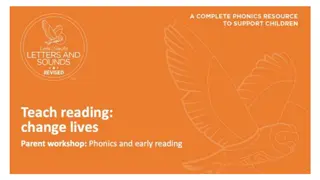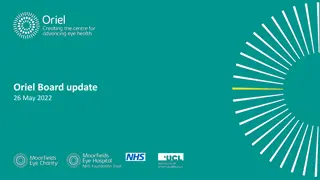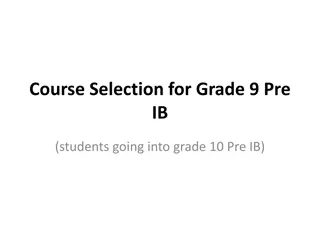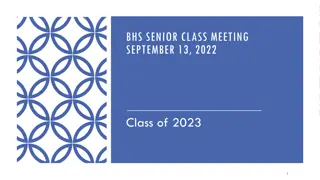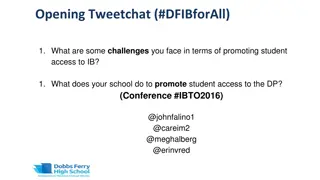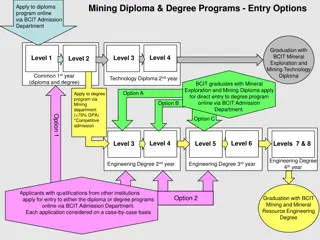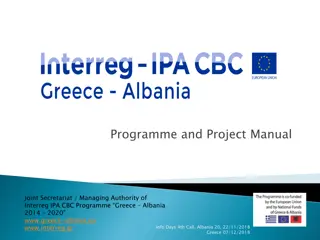Supporting Student Success in IB Diploma Programme
In counseling students for entry into the IB Diploma Programme, it is crucial to consider various factors such as students' goals, home life, resilience, learning accommodations, and social relationships. These aspects play a significant role in determining students' success within the program. Important considerations include understanding students' previous challenges, resiliency, and support systems in place within the school. Building a holistic support system that addresses academic, social, and emotional needs is key to facilitating students' success in the IB Diploma Programme.
Download Presentation

Please find below an Image/Link to download the presentation.
The content on the website is provided AS IS for your information and personal use only. It may not be sold, licensed, or shared on other websites without obtaining consent from the author.If you encounter any issues during the download, it is possible that the publisher has removed the file from their server.
You are allowed to download the files provided on this website for personal or commercial use, subject to the condition that they are used lawfully. All files are the property of their respective owners.
The content on the website is provided AS IS for your information and personal use only. It may not be sold, licensed, or shared on other websites without obtaining consent from the author.
E N D
Presentation Transcript
Unusual; student seems to have no issues or concerns; model student. The average student ; encounter issues to be expected. Most affected student/student that struggles the most Academic Social/emo tional Academic Social/emotional Academic Social/emotional
*You are counseling/advising a group of students with regards to entry into the IB Diploma Programme. Given the various situations that can often happen with students, discuss in your pair/small group what you think is important to consider and why, as it relates the students success. Rate the AREAS AFFECTED on a scale of 1-7 and explain why. 1=least important to be considered 7=most important to be considered
Students goals, post-secondary? Student s home life (i.e. parent divorce/separation, family member illness?) Transient? (i.e. how is the student adjusting? Is this the 1st move, or 5thmove?) Previous challenges that might have impacted previous learning experiences (i.e. social-emotional, clinical concerns, depression, anxiety, loss of a family member) Resiliency? (i.e. how does the student deal with set backs or challenges in academics? What are their overall coping skills like? Any learning challenges or disabilities? Should this matter? Learning Accommodations? Social relationships (i.e. Difficulty relating to others? Level of involvement in school community)
Quick Share Back Top 3 Most Important?
What Is in Place NOW? IB Coordinator School Counselor? Social Emotional/addt l information Learning Support? Learning differences/accommodations plans in place? Advisor/Pastoral Care? Advisory sessions on stress management/reduction; building community and cohesiveness; social support system for students Grade Level Coordinator? Oversees the grade year and coordinates any additional programs needed for successful IB years. MYP? A natural bridge to IB and IB Learner Profile
@ UNIS IB Coordinator College Advisor/Counselor STUDENT CENTERED Guidance Counselor &/or School Psychologist
1) Scenario 2) If you could create your own model regarding advising for IB candidates, what would it look like? Before, During, After? Who would be apart of your team? Why? *ADDITIONAL COMMENTS .
Linda recently transferred to your school from a State school in Malaysia. Her parents goal is for her to study in your school because of the wonderful opportunities your curriculum provides, particularly the DP. This is Linda s 1stmove, internationally. Her grades mostly fall in the 4 range. Her older brother died in a car accident 3 years ago, but the family relays on one another for support, only. She reports she is fine . Linda is worried about disappointing her parents. She has also had a difficult time making and keeping friends, most recently because during class discussions, she consistently criticizes and puts down her fellow classmates who do not think the same way she does on important matters. How do you support the situation overall, for best outcome, given your role? What do you consider?
1. Personal and social competencies 1. Decreased negative behavior and aggression 1. Fewer serious discipline problems and school suspensions 1. Increased acceptance among peers 1. Better school attendance 1. Higher grade point averages 1. Higher academic achievement scores 2. Connectedness, Learning, and Safety
Dimmock, C., & Walker, A. (2000). International Education and IB Programs. jri.sagepub.com/content/3/2/189.refs Hare, J., 2010. Holistic Education: An Interpretation for Teachers in the IB Programmes. Boyatzis, R., Ph.D, Goleman, D. Ph.D., & Hay Group, Inc. http://www.haygroup.com/leadershipandtalentondemand/ourproducts/item_detail s.aspx?itemid=58&type=1 Salovey, P., PhD. (1986). Dean and Professor of Psychology, Yale University. Teleos Leadership Institute, 2016 http://www.teleosleaders.com/howwedoit/emotional.php 6 Seconds Program, The Emotional Intelligence Network http://www.6seconds.org/pdf/casefor_EQ_school.pdf http://www.unh.edu/emotional_intelligence/ http://www.edge.org/q2005/q05_print.html#goleman http://www.danielgoleman.info/topics/emotional-intelligence/


